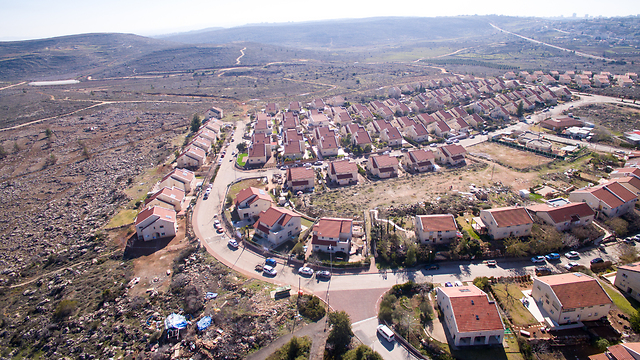
Attorney General Avichai Mandelblit on Wednesday submitted his response to two petitions filed against the Regulation Law, stating that seeking to legalize government-backed outposts in the West Bank built on Palestinian land is "unconstitutional."
The Regulation Law stipulates that while the land itself will remain the property of the (often Palestinian) owners, the state will be able to expropriate its use within the West Bank region (to be used by settlers). As a result, the land owners will be able to choose between being monetarily compensated at an amount higher than the land's worth, and an alternative piece of land.
Mandelblit had previously stated that the law was a discriminatory and one-sided annexation that could seriously hurt Palestinian land ownership, trample recognized arrangements relating to the competition of rights on property and increase the government's capacity to seize land.
"There is no alternative to a judicial declaration of the Regulation Law as unconstitutional, set to be null and void," wrote the attorney general, noting that the law—which intended to address the plight of settlers facing eviction and demolition—is "a sweeping and harmful arrangement that lacks proportionality."
In February, the Regulation Law passed its second and third voting rounds, with a majority of 60 to 52.
Mandelblit, however, made it clear a week prior that were it to pass, he would not defend the bill in the High Court.
"There is no dispute that the desire to provide a proper response to this problem, in cases where we are dealing with innocent settlers who have found themselves in a situation not in their favor, is a worthy purpose," he elaborated, while emphasizing that "at the same time, the law does not suffice to provide a response to these situations, while also being applicable in situations where there is no justification for doing so."
One example for such a case would be if a citizen decides to build their home on land that has no legally undisputed owners—say, with one claimant being an Israeli settler and the other being a Palestinian. In such a case, the AG contends, the law would have no justification for deciding on the lands' ownership by ruling in favor of the settler.
"The arrangement established in the law is sweeping, injurious and gives absolute priority to the rights and interests of the settler over the property rights of the land owners in the area," Mandelblit stressed.
"The law will also cause severe discrimination of the Palestinian population in the region, and therefore the law does not meet the test of proportionality."
"This conclusion," the AG added, "is bolstered in view of the fact that this law deviates significantly from recognized arrangements in the laws of the region and in Israel relating to the competition of rights on property, as well as the arrangements relating to the taking of land rights by the authorities."
"The law also raises serious questions on the level of international law," he stressed.
"However, it is sufficient to conclude that the law's directives do not pass the constitutional review in order to bring to the conclusion that there is no alternative but to declare nullity."
The Regulation Law is meant to settle the the legal standing of thousands of homes in West Bank settlements built on land privately owned by Palestinians. It is estimated that some 2,000 homes fall under this law's jurisdiction.


















